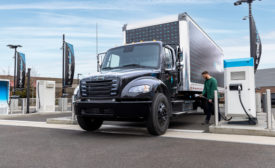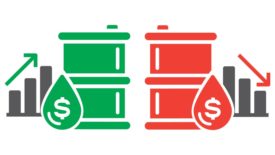ARTICLES
Fleet maintenance experts weigh in on important steps
Read More
Advance Driver Assistance Systems gradually gaining greater acceptance, adoption
FMCSA releases report on initial on Tech-Celerate Now program
April 2, 2024
2027 EPA standards prompt changes for heavy duty vehicles
New, proposed missions-reduction regulations create a challenging road ahead
March 1, 2024
Distribution
Vehicle technology trends are reinventing tire solutions for beverage fleets
Tire manufacturers turn to smart technology, accommodate EV needs
January 31, 2024
Distribution
The present and future of AI in beverage delivery
Investments by truck manufacturers teases autonomous’ potential
January 2, 2024
2024 Trucks Report: Delivery fleet manufacturers continue to put more of their eggs into the electric basket
Trucks manufacturers equip vehicles with latest software, improved ergonomics
December 1, 2023
Distribution
The road ahead for autonomous delivery trucks
Investments by truck manufacturers teases autonomous’ potential
October 4, 2023
Distribution
8 keys to effective driver ergonomics
Physical therapist offers tips on how to improve driver comfort
September 5, 2023
Distribution
Less volatility expected for fleet fuel prices
2024 average fuel prices projections below 2022 highs
August 3, 2023
Elevate your expertise in the beverage marketplace with unparalleled insights and connections.
Join thousands of beverage professionals today. Shouldn’t you know what they know?
JOIN NOW!Copyright ©2025. All Rights Reserved BNP Media.
Design, CMS, Hosting & Web Development :: ePublishing




